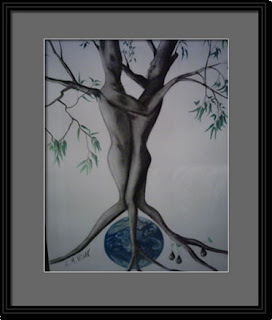 Armstrong's thoughts are very much in sync with my own on agents of change, love and art as bridging towards the truth. In this book, he brings in an extra dimension of civilisation as the societal life-support system in the environment of freedom in order to nurture high-quality relationships between people and their ideas and objects. He defines such high-quality relationships as enabling the flourishing of our human nature. Such relationships are beyond attachment and obsession and invoke a questioning of worth and value.
Armstrong's thoughts are very much in sync with my own on agents of change, love and art as bridging towards the truth. In this book, he brings in an extra dimension of civilisation as the societal life-support system in the environment of freedom in order to nurture high-quality relationships between people and their ideas and objects. He defines such high-quality relationships as enabling the flourishing of our human nature. Such relationships are beyond attachment and obsession and invoke a questioning of worth and value. And so this adds onto my idea: that free agents come together/ act seperately in order to foster a society with a nurturing environment with the aim of developing human flourishing (freeing the others from the social realm of pain and thereby allowing them to look upon and explore concepts of value).
But this is no airy-fairy idealism for he acknowledges that material support must be present in order to allow for such flourishing to happen. Very importantly, he even goes on to defend worldy goods and that they are not the cause of us being spiritually/ innerly deficient. He posits that it is not material comfort that has beguiled us from the path but that we have not grown sufficiently in our inner world. And this is because we allow our attachment to material goods to be just that. We do not use them as conduits in which to explore and develop our concepts of value. To achieve this, we must go, "So I love having this/admiring this object, but why do I love it? What does my love for this object then tell me about myself?"
Another important point that Armstrong puts forth is the distinction between "happiness" and "flourishing" and that we should aim for the latter since happiness is a buoyant inner state but not grounded in action and character. This brings into emphasis the new maxim that I shall adopt for next year, "How can I be of help to others today?" We must help each other deal with the challenges of mortality in the outer realm where the tangible realities bite at us on the most immediate level. And when happiness can be achieved, we must guide others on to a flourishing state.

No comments:
Post a Comment